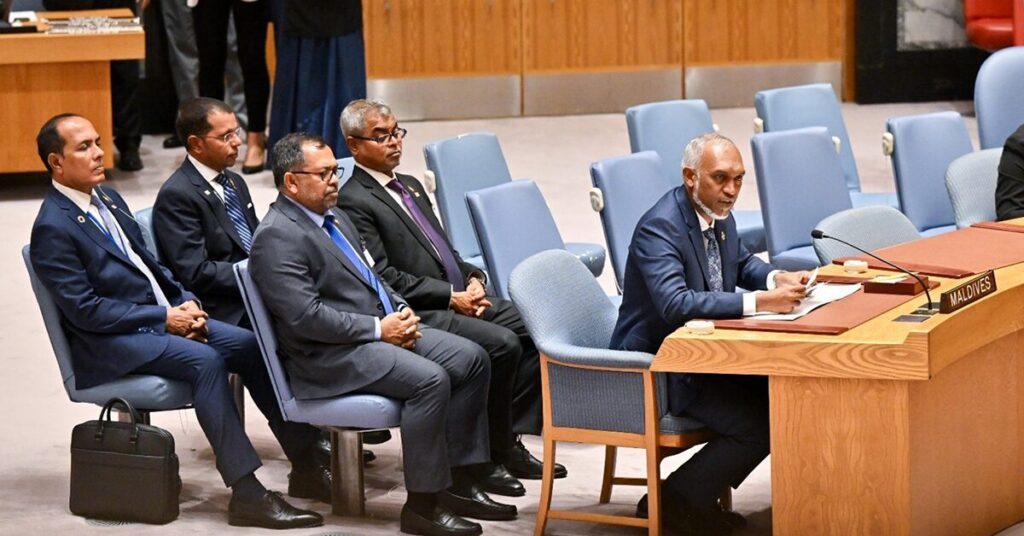New York, 25 September 2024 – In a powerful and historic address to the United Nations Security Council, President Dr. Mohamed Muizzu of the Maldives called for the abolition of the veto power held by the Council’s permanent members, condemning it as a major obstacle to global peace and security. His impassioned speech, which marked the first time a Maldivian President has addressed the Security Council since the country joined the United Nations 59 years ago, was met with widespread shock and concern as he highlighted the ongoing atrocities in Gaza.

President Muizzu, addressing the council during a high-level open debate on ‘Leadership for Peace: United in Respect of the UN Charter, in Search of a Secure Future,’ did not mince words when discussing the current situation in Gaza. He described the events as “genocide unfolding under the nose of a Security Council unwilling to uphold international law,” emphasizing the paralysis of the Council due to the veto power, which has allowed Israel’s military actions to continue unchecked.
“The world is shocked by the violence and suffering in Gaza,” President Muizzu declared, pointing out the severe consequences of the Council’s inaction. “The veto has paralyzed the Council, enabling Israel’s brutal occupation and the massacre of innocent people with impunity.”
The President’s remarks come at a time when global trust in the Security Council is at an all-time low, with many nations questioning its relevance in addressing today’s conflicts. Dr. Muizzu proposed significant reforms, including the establishment of a permanent rotating seat for Small Island Developing States (SIDS) and the creation of a mechanism that would allow for real-time, innovative solutions from the international community to prevent such atrocities in the future.
He also urged the Council to adapt to non-traditional security threats, including those posed by technology, and to listen more closely to the people it serves. “It is imperative that the Security Council reforms itself to become more inclusive, transparent, and accountable,” he stated, emphasizing the need for text-based negotiations to drive these efforts forward.
President Muizzu concluded his address by reminding the Security Council of its foundational principles, established to maintain a world order based on justice. He warned that this architecture is disintegrating under the weight of civilian casualties, including aid workers, UN staff, and journalists. His urgent call for reform was a stark reminder of the need for the Security Council to evolve in order to effectively respond to the global challenges of today.
The world continues to watch in shock as the situation in Gaza unfolds, with President Muizzu’s call for the abolition of the veto echoing through the halls of the United Nations and beyond.


